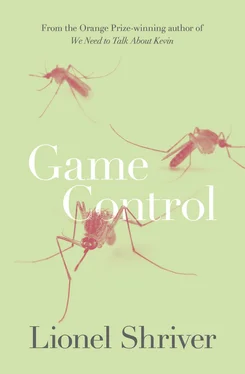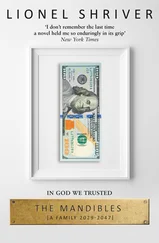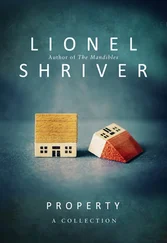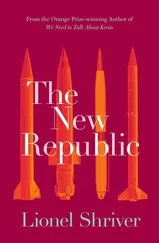And Piper made him feel fat. Piper was the older although he didn’t look it, and was surely one of those careless types who never gave a thought to what they ate, while Spring jogged four joyless miles a day, and had given up ice-cream .
“You ruined that Kuke’s day, you know,” Calvin was commenting about the askari . “He loved barring my way. You get a lot of wazungu rolling their eyes about Africans and bureaucracy, how they revel in its petty power—but how they don’t understand it, wielding stamps and forms like children playing office. I’ve come to believe they understand bureaucracy perfectly well. After all, most petty power isn’t petty a-tall, is it? These tiny people can stick you back on your plane, impound your whisky, cut off your electricity and keep you out of conferences you so desperately wish to attend. Bureaucracy is a weapon. And there is no pleasure greater than turning artillery on just the people who taught you to use it.”
“Calvin,” implored the Director, “do keep your theories quiet this week. I’m off for some wine.”
Leaving the man toothpicking pineapple to his ill-tempered monkey, Spring felt sheepish for having let the rogue inside. He was haunted by childhood fairy-tales in which the aggrieved, uninvited relative arrives at the christening anyway, to curse the child.
It was a mistake to exhort Calvin to keep his mouth shut. Had Spring encouraged enthusiastic participation in the interchange of controversial ideas, Piper might have loitered listlessly in the back, thumbing abstracts. Instead Calvin perched with his pet in the front row of a session on infant mortality, making just the kind of scandal sure to see its way into the Nairobi papers the next day.
“Why are we still trying to reduce infant mortality,” Piper inquired, “when it is precisely our drastic reduction of the death rate that created uncontrolled population growth in the first place? Why not leave it alone? Why not even let it go up a little?” He did not say “a lot”, but might as well have.
The room stirred. Coughs. Heads in hands.
The moderator interceded. “It is well established by now, Dr. Piper, that reduction of infant mortality must precede a drop in fertility. Families have extra children as an insurance factor, and once they find most of those children surviving they adjust their family size accordingly, etc. This is kindergarten demography, Dr. Piper. We can dispense with this level of discussion. Ms Davis—”
“On the contrary,” Calvin pursued. “All of Africa illustrates that fallacy. Death rates have been plummeting since 1950, and birth rates remain high. So we keep more children alive to suffer and starve. I would propose instead that this conference pass a resolution to retract all immunization programmes in countries with growth rates of higher than 2 per cent—”
The session went into an uproar. “Moderator!” cried a woman from the Population Reference Bureau. “Can we please have it on record that this conference does not support the death of babies?”
The next day the headline in Nairobi’s Daily Nation read, “Pop Council Conference: Let Children Die”.
Like everyone else, she had heard he was there, caught the flash of defiant black hair, the screech of his sidekick, and had craned across the rows to find that at least at a distance he hadn’t changed much. When dinners roiled with the infant mortality affair, she found herself sticking up for him: “He just likes to be outrageous. It’s a sport.”
“At our expense,” the woman from the Population Crisis Committee had snapped, and Eleanor got a whiff of what even passing association with Calvin Piper had come to cost you.
His arrival changed the whole conference for her. She found herself drifting off with an obscure secretive smile as if she were still the girl she had been then. Yet she never sought him out. She conceded as the conference convened for its final address that she was afraid to introduce herself in case he drew a blank, which would irremediably damage a memory she still held dear. There weren’t many of those left.
Eleanor knew copious conferees, but not beyond the level of talking shop, so while many parties would take advantage of free air fare to bask for a week in Malindi, Eleanor had not joined up. She was beyond Africa as entertainment. Besides, had she bundled off to the coast, she could picture the evenings all too well: the men getting sozzled at a cheap veranda bar, telling Third World snafu stories; Eleanor increasingly chagrined as they dared one another to be a little bit racist, until they were actually using the word “wogs”. She would have to decide whether to object and make a scene and tighten everyone up but at least defend her principles, or to slip off to her room to pick the flaking skin from the back of her neck, worrying into the mirror, her nose gone hard.
As the rest scattered officiously with planes to catch, Eleanor wandered down the steps with nothing to do. It was too early for dinner and her own flight back to Dar es Salaam was not until the next day She could stroll back to her hotel and pack, but she travelled so lightly now that she was fooling herself—it would take five minutes.
So she dandered down to Kaunda, listlessly scanning shops, most of whose proprietors were Asian, and hardly appreciated by Kenyans for their enterprise. The goods for sale—film, antique colonial silver and the endless taka-taka of soapstone wart-hogs, banana-leaf elephants, and ebony rhinoceroses—did not cater to residents but to the scattering of travellers down the walk, unselfconsciously trussed in khaki safari gear and dopey little hats. Along with the encrusted, sun-scorched backpackers who lay knackered on curbs, Eleanor wondered how the tourists could bear their own cliché, though there was surely some trite niche into which she herself fitted all too neatly. The well-meaning aid worker on a junket. Eleanor sighed.
Everywhere, animals. With the T-shirts covered in zebra stripes, lions’ manes and cheetah spots, you would never imagine that Kenya had a population problem of a human variety. Stifled by the tinny, tacky shame of it all, Eleanor veered from the town centre towards River Road, where the giraffe batiks gave way to jikos, sufurias and mounds of second-hand clothes, among which she was more at home. Touts beat the sides of matatus for still more fares when their passengers were already bulging out of the windows. These privately run minibuses formed the core transport system of Kenya, painted in jubilant zigzags, with names like “Sombo Rider and Road Missile” or “Spirit of Jesus Sex Mashine”, “I Luv Retreads” and “See Me After Job” on the bumpers. Oh, River Road was as tasteless as downtown really, but with a jostling, exuberant trashiness that Eleanor relished. Everyone hustling for a bob, no one in this part of town would fritter their shillings on soapstone wart-hogs in a million years.
Gradually, however, she grew nervous. While the eyes of pedlars and pedestrians just a few blocks away were beseeching or veiled, here they glared, unmistakably hostile. Children pointed at Eleanor, shouting, “ Mzungu!” Tall, muscular men knocked her shoulders on purpose. Matatus side-swiped her path as she tried to cross the street. Much as she marvelled at the energy and ingenuity of the neighbourhood, this was their part of town and she didn’t belong here. Everywhere on this continent her complexion blinked like an airstrip light. The one relief of trips to Boston was to walk down the streets and blend in.
She retreated back to Trattoria for tea, tired from her meagre foray, feeling after the feeble excursion that she had been a terribly long way.
Yet when she bent dutifully over papers from the conference, the print blurred, “The Cultural Context of High Fertility in Sub-Saharan Africa” having no apparent bearing on the dusty villages to which she bounced her Land Rover monthly. This persistent malaise had been wheedling its way into odd moments over tea with increasing frequency. Perhaps she had malaria again.
Читать дальше












